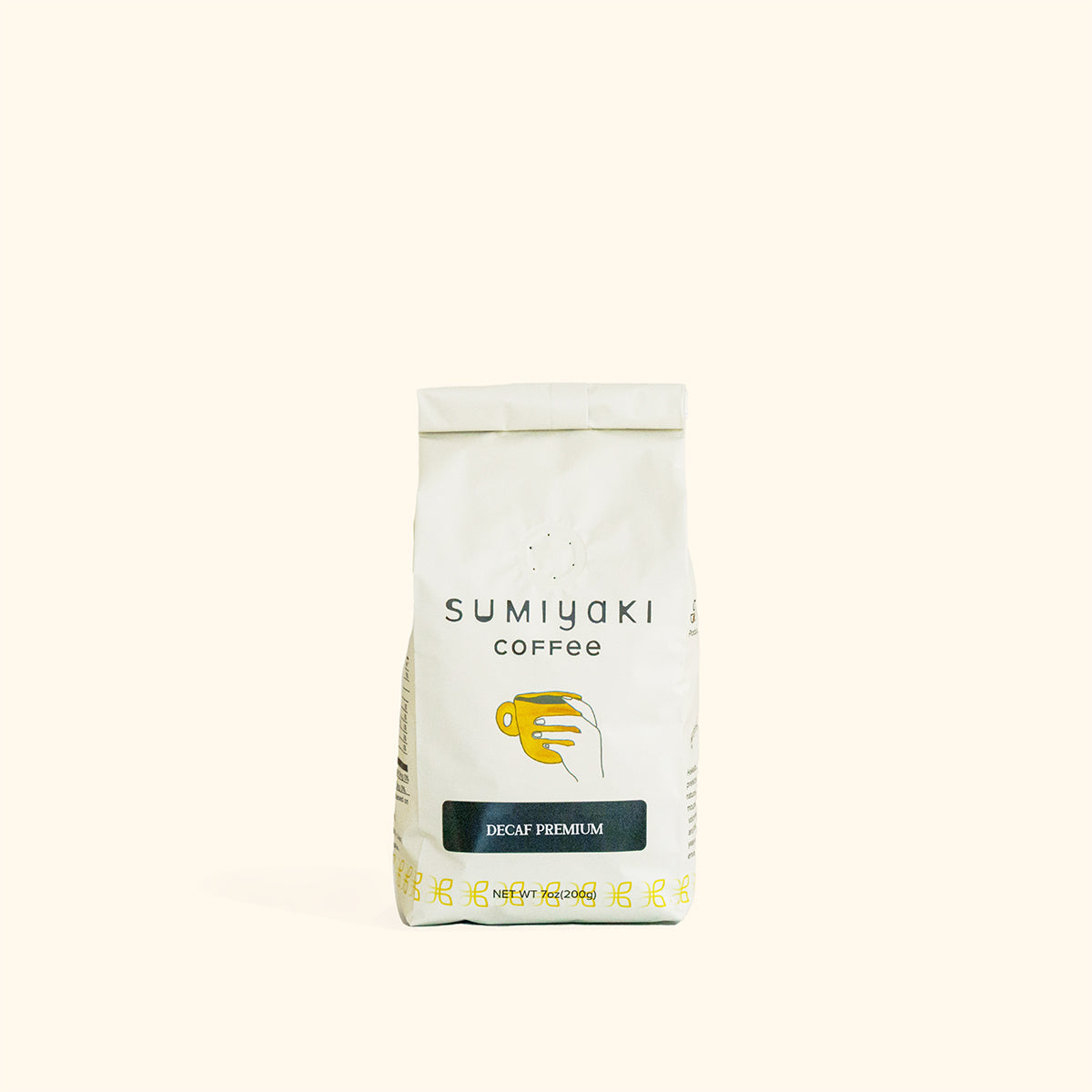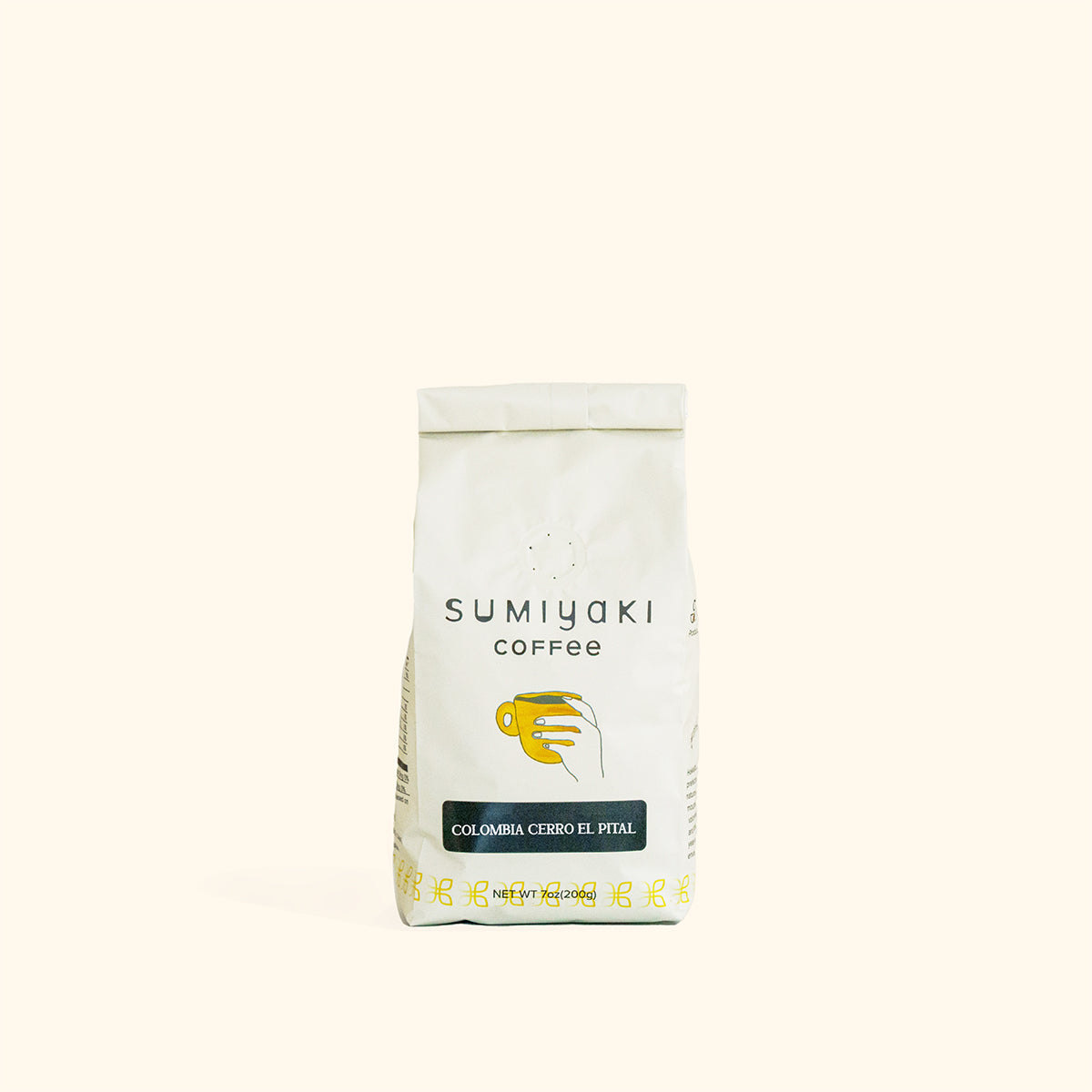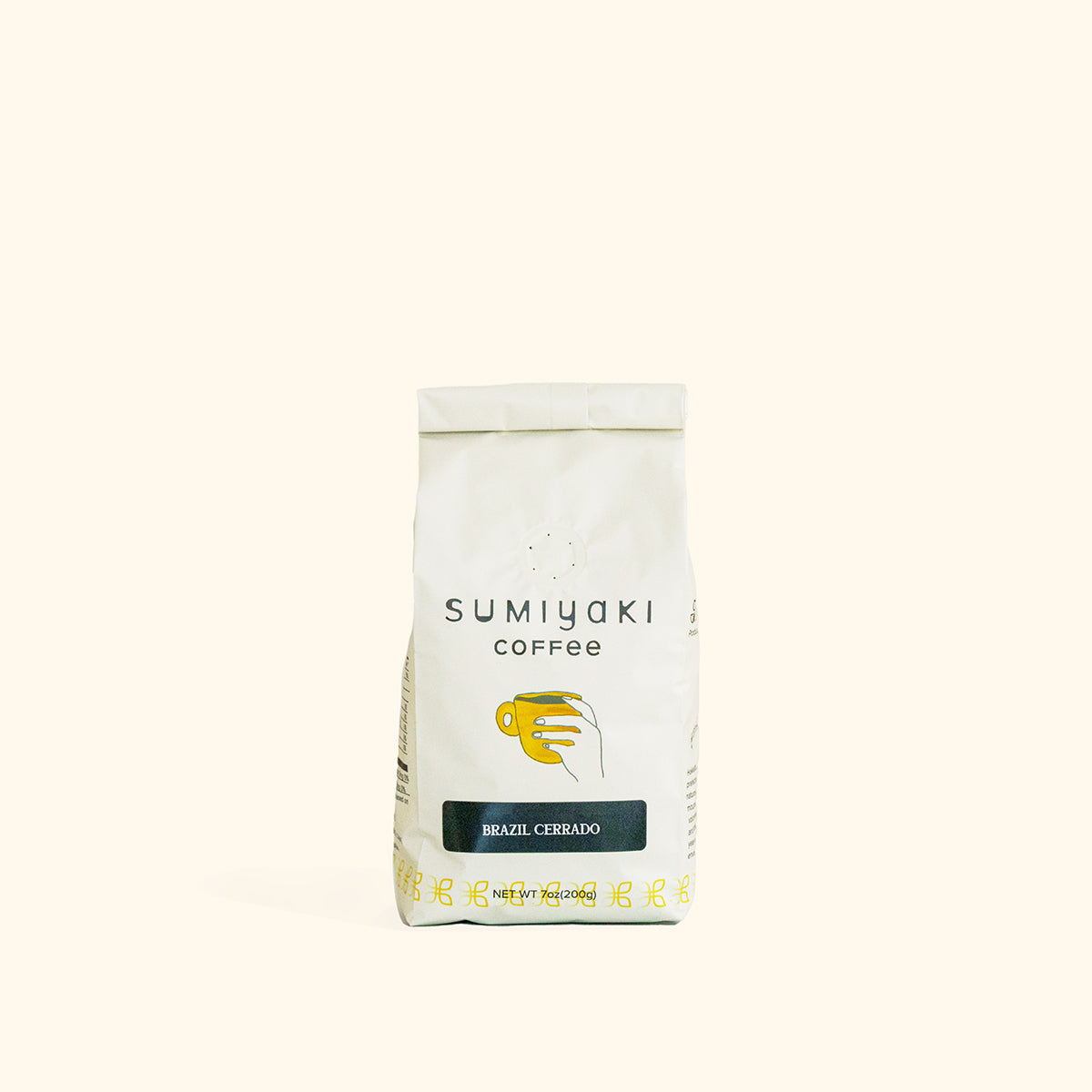Coffee is one of the most popular beverages on the planet. It certainly has been the preferred go-to morning drink by many. It can be taken in a variety of ways. Some people like drinking their cup of joe plain black while others prefer to tweak it to make their drink suit their taste better.
While many coffee drinkers used to be satisfied with the usual condiments of sugar, milk, or creamer, they are now more open to an amplified, if not altogether unique, manner of enjoying their coffee. Thanks to the easy access we now have to information, we are willingly or reluctantly kept abreast of whatever's trending. This is certainly true for coffee fads.
Read about Japanese coffee trends.

In recent years, novel ideas for enhancing the coffee experience have been introduced to the public. Some had merit, while others weren't particularly beneficial or palatable and quickly fizzled out of consciousness. Nonetheless, they're all very fascinating.
Some of the coffee combination trends bear looking into, and here are the ingredients that have held great appeal to the public.
1. Lemon
Adding lemon juice to coffee was all the rage on Tiktok a couple of years ago. The purported claim was that this acid-upon-acid concoction can help you lose weight, besides providing the additional benefits of remedying headaches and diarrhea as well as improving skin health. However, this has been pretty much debunked by dieticians and nutritionists.
Nonetheless, where did this trend start? It's hard to pinpoint whose bright idea it originally was, but it became a TikTok challenge wherein numerous users, including influencers, participated. At one point, there circulated a spliced video of popular Beverly Hills ophthalmologist Brian Boxer Wachler that made it sound like the doctor approved of the combination, which was not the case at all.
Since many Tiktokers tried this trend, the results were pretty polarized. Some admitted that lemon coffee didn't really do anything to reduce their weight, while others swore to its efficacy. But what's the actual score with this drink? Let's delve deeper into the claims to assess their merit and determine what the experts say about them.

The Benefits
-
Relieves headaches and diarrhea.
This claim could be based on the fact that caffeine, a vasoconstrictor, can tighten blood vessels, reducing blood flow to the head. This results in relieving pain. Then again, reaction to caffeine is subjective, with some actually experiencing headaches or migraines triggered by caffeine. So, this means that the jury's out when it comes to headache relief, and, in any case, the possible benefit would be elicited by caffeine and not by the combination of coffee and lemon.
As for relieving diarrhea, coffee and lemon actually sounds more like a recipe for it. Caffeine is not only a diuretic but is also a mild laxative for some, stimulating colon activity and increasing anal pressure, resulting in the urge to void.
Coffee is also acidic, which means it could irritate the stomach to produce more gastric acid. Add another acidic element to an already acidic drink, and it could very well lead to a punishing trip to the bathroom.
This segment may have inadvertently painted coffee as the antagonist in the realm of health, but let's not forget that, when enjoyed in moderation, coffee boasts numerous health benefits. To delve deeper into the reasons behind coffee's positive impact on health, feel free to explore this link.
-
Improves skin.
According to research, both coffee and lemon benefit the skin. The CGA (chlorogenic acid) content of coffee is known to help with blood circulation and skin hydration. Studies indicate it can diminish scaliness, increase smoothness, and lessen skin barrier deterioration.
Meanwhile, lemon has high vitamin C content that stimulates collagen production. This is a protein that makes the skin stronger and more elastic. Vitamin C also reduces skin damage from sun exposure.
For those keen on skincare, particularly through natural beverages, this article highlighting the remarkable benefits of Japanese green tea for skin health could capture your interest. If you'd like to explore further, you can find the article by following this link.
-
Helps with weight loss
Those who believe in the effectiveness of this trend explain the alleged phenomenon by breaking it down to what each element supposedly brings to the table.
Coffee
This is a diuretic that may help flush excess water and harmful toxins out of the body. Nonetheless, while coffee may induce frequent urination, it doesn't necessarily mean that it is assisting in weight loss or even in the natural toxin-flushing functions of the body.
The caffeine in coffee has been proven to increase resting metabolic rate. It is also acknowledged to significantly affect the nervous system, promoting an energized feeling and breaking down fat cells. Again, however, coffee in itself can achieve this. There has been no evidence that adding lemon can amplify these properties.
Coffee is said to reduce the appetite. This claim has been somewhat validated by many coffee drinkers who have noted a decrease in their food intake when they consume coffee.
Find out more about coffee and weight loss.
Lemon
In lemon's case, research has shown that drinking lemon water before breakfast can help stave off hunger cravings for the rest of the day. Lemon's sour taste also helps counteract a desire for sweets. Considering these, it can be said that lemon does have some influence on weight loss efforts. This effect can be achieved without coffee; however, coffee's weight loss benefits can also be tapped without adding lemon.
The Downside
Besides some people loving the taste of lemon coffee, is it simply a matter of compounding the two components' benefits, effectively hitting them all in one drink? While possible, it's also important to consider the potential adverse side effects of combining them.
-
Poses a higher risk of heartburn.
People prone to heartburn should think twice before drinking lemon coffee since they're supposed to limit their consumption of both. They certainly shouldn't drink the combination on an empty stomach.
-
Increases risk of dental erosion.
Coffee and lemon, separate, are not the best for the teeth. Besides their staining effect, they're both acidic and, thus, erosive to enamel.
-
Possibly causes dehydration.
Lemon coffee equates to a double diuretic. It could end up being dehydrating instead of hydrating.
2. Butter
The concept came from Bulletproof Coffee, a concoction that David Asprey created. It was inspired by the butter tea of the Himalayas. This tea is touted to help deal with various maladies, including indigestion, fatigue, and even cognitive difficulties.
Asprey adapted the idea to coffee, an innovation that now bears the moniker Bulletproof Coffee. It is also often referred to as keto coffee, with Asprey promoting it as a breakfast replacement. Its reported benefits are increased energy, improved digestive health, better blood sugar management, and weight loss.

Since the Bulletproof Coffee recipe that Asprey published specified a particular kind of coffee bean, grass-fed unsalted butter, and MCT (medium-chain triglycerides) oil, which are not always readily available to many consumers who are interested in its benefits, some have put it upon themselves to be resourceful and gone the DIY route. Posts about their own version of bulletproof coffee started going around social media, most notably on TikTok.
DIY butter coffee consists of any kind of coffee, coconut oil for MCT, and any kind of unsalted butter. Those who have lactose issues often use ghee instead of regular butter. This is a type of low-lactose clarified butter that has an abundance of healthful fatty acids.
The Benefits
Looking into the veracity of the claims regarding the benefits of butter coffee, these are the general findings of the experts.
-
Supports a ketogenic diet.
This is a low-carb diet that's designed to achieve ketosis, a process that breaks down the body's stores of protein and fat. This is especially helpful to the obese in their weight loss campaign.
The MCT oil ingredient contributes considerably to shortening the time for the body to start burning protein and fat instead of blood sugar reserves. It has also been observed to reduce the early side effects of the diet, including nausea, headaches, constipation, and fatigue.
-
Reduces hunger
Butter coffee does have the ability to make drinkers feel full because of its high-fat content. They just need to exercise caution and monitor their calorie count throughout the day. Obviously, they would have to factor in the high calorie of butter coffee. Depending on the recipe followed, it could be anywhere from 230 to 500 calories per cup.
-
Increases energy
The fat in butter coffee is said to slow down digestion, which means that the caffeine in coffee is not absorbed as quickly, allowing it to provide energy for a longer time. Experts say, however, that while butter coffee's fat content may have this effect, it's not at a level that's noticeable or significant.
Again, the ingredient responsible for the long-term energy boost is MCT oil. The body easily breaks down and absorbs MCTs, which can then be turned into ketones. These are liver-produced molecules from fatty acids, which help increase energy levels over a longer duration.
-
Boosts mental clarity
Again, this benefit is true, but it's really down to one ingredient: coffee. The caffeine in it is a known stimulant that increases focus and concentration. The MCT oil may have some association with helping certain neurodegenerative diseases like Parkinson's and Alzheimer's. Still, there isn't strong enough evidence that it can actually enhance mental clarity.
The Downside
Again, a seemingly good thing is not without its potential negative side effects. In the case of butter coffee, they're the following:
-
Risks possible malnutrition.
This is not a breakfast replacement. Buying into that idea could mean the displacement of vital nutrients as well as the addition of a considerable amount of unnecessary calories.
-
Possibly causes stomach problems.
Since butter coffee is especially fatty, consuming it can also result in stomach discomfort and other gastrointestinal issues such as diarrhea and bloating.
-
Elevates cholesterol levels for hyper-responders.
It can also significantly raise blood cholesterol for hyper-responders. High-cholesterol foods normally don't affect people's cholesterol levels, but they do for hyper-responders.
3. Salt
Salt coffee is nothing new. It is considered a traditional drink in many places, including Vietnam, Taiwan, Turkey, and Scandinavia. However, it was celebrity food scientist Alton Brown who popularized it in the social media age. Then, it wasn't long before Tiktokers were posting reels about their own experiences with salt coffee.
The general belief is that the salt diminishes coffee's bitterness and brings out its natural sweetness at the same time. Science actually proves this to be true. Our taste buds allow us to identify different flavors, but bitterness elicits a distinct reaction from us. When we taste something bitter, the brain receives calcium ions bearing this message. Meanwhile, when we consume salt, sodium ions attach to the salt receptors on our tongue and inhibit the perception of bitterness.

Simultaneously, salt enhances other flavors like sweetness, sourness, and umami. In effect, it suppresses the bitterness of coffee while increasing its sweetness. Adding salt to a margarita glass rim or licking salt right before taking a shot of tequila operates on the same principle.
The simple matter of salt coffee is not without its share of discord and controversy. Apparently, there's some disagreement on how to make it. Alton Brown specifies half a teaspoon of salt for a cup of water and two teaspoons of coffee. Others are okay with not being as precise. A pinch or a dash is good enough for them.
Some add salt before brewing, while others do so after brewing. Then, there are champion baristas who have created their own salt-water solutions to be dripped into the coffee. Salt coffee consumers, however, all agree that the salt amount should be subtle. The underlying principle in its efficacy is "less is more."
Meanwhile, there are also those who claim that salt should only be added to inferior coffee, usually alluding to robusta beans, or really dark roast coffee. For them, high-quality coffee should not be tampered with. Its delicate flavor nuances should remain intact to be properly noted and appreciated, with its bitterness being very much a part of its special flavor.
Learn about Arabica and Robusta beans.
The Benefits
Besides its pleasing effect on the palate, does salt coffee carry other perks? While the main thrust of salt coffee is its flavor, it may also be pointed out that salt does have health benefits and is, in fact, essential to life. The assumption, of course, is that these would add to the ones provided by coffee itself.
-
Boosts metabolic function.
There's evidence that suggests dietary salt influences energy balance and metabolism through mechanisms such as thermogenesis (heat production) and lipolysis (the breakdown of triacylglycerols into glycerol and free fatty acids through hydrolysis) as well as the regulation of vital hormones like leptin (manages hunger by making the body feel full) and aldosterone (helps control blood pressure).
-
Increases central nervous system performance.
Sodium is necessary for the body to conduct nerve and muscle functions. With potassium, it serves like a chemical battery that powers the transmission of neural electrical impulses as well as the contraction and relaxation of muscles.
-
Lowers risk of heartburn.
Since coffee is acidic, drinkers run the risk of experiencing heartburn. However, with the addition of salt, which helps neutralize coffee's acidity, the risk is considerably lowered.
-
Promotes hydration.
Since coffee is a diuretic, it can lead to frequent urination, which can then lead to dehydration and loss of sodium in the body. Adding salt, an electrolyte, to coffee can counter its potentially dehydrating effect. Electrolytes are minerals that promote better water absorption and balance for staying hydrated for longer periods.
The Downside
Again, the main caveat about drinking salt coffee is the risk of overdoing it with either salt or coffee.
-
May cause side effects from overconsumption of either or both.
Too much coffee has the negative side effects of trembling, anxiety, palpitations, etc., while too much salt can double the risk of heart disease.
Studies indicate that people who consumed daily over 13.7 grams (a little less than a tablespoon) of salt doubled their heart failure risk. The World Health Organization recommends no more than five grams (about a teaspoon) of salt per day.
4. Egg
Like butter coffee and salt coffee, egg coffee was already a traditional drink in many places worldwide before going viral on the Internet. Before being featured on Instagram and TikTok, the thick, creamy, and sweet drink was already enjoyed in Vietnam, Hungary, Scandinavia, and other areas rich in coffee enthusiasts.
Every culture makes egg coffee differently. Some use both yolk and white, while others stick to just the yolk. Some include the shells, and others don't. One of those credited for bringing the combination to social media consciousness is celebrity chef Saransh Goila.

The most common process involves whisking an egg with ground coffee, pouring some cold water into the mixture, and stirring before adding it to boiling water and simmering for a few minutes.
The Benefits
There are claims that egg coffee has multiple health benefits, but it's mainly being touted as a workout beverage in the fitness niche. Coffee, being a stimulant, can provide a performance boost. Meanwhile, eggs have protein and fats that aid in recovery. Considering this, there is some confusion on whether egg coffee should be a pre- or post-workout drink.
Nevertheless, it purportedly also has several other benefits:
-
Decreases cancer risk.
Both coffee and egg can reduce the risk of certain cancers. For instance, coffee has been found to reduce the risk of cervical cancer and liver cancer. Meanwhile, eggs are said to reduce the risk of breast cancer.
-
Improves eye health.
As previously mentioned, coffee has chlorogenic acid, which also helps keep eyes healthy. On the other hand, Eggs are high on the list of foods supporting eyesight. They have vitamins C and E, as well as lutein and zeaxanthin. This is the ideal nutritional combination for countering macular degeneration.
The Downside
Egg coffee is yummy if your taste runs to thick and creamy drinks, and it has some distinct benefits. Still, you'll have to decide whether the positive outweighs the downside, which includes the following:
-
Interferes with nutrient absorption.
Coffee has tannins and polyphenols. These compounds can mess with the body's absorption of some nutrients, e.g., the calcium and iron in eggs.
-
Raises risk for digestion issues.
Both coffee and eggs have the potential to cause an upset stomach, acid reflux, or heartburn. People with pre-existing stomach problems such as GERD (gastroesophageal reflux disease) or IBS (irritable bowel syndrome) should stay away from this fusion.
-
Possibly causes dehydration.
Each bearing diuretic properties, coffee and egg together can cause frequent urination, which could contribute to dehydration and its multiple unpleasant symptoms.
5. Moringa
There are claims that moringa is the most nutritious plant on the planet. Considered a superfood, it is rich in vitamins, minerals, protein, and antioxidants. Moringa has become quite a health fad in the past few years, and it remains very much in demand, often blended into staple food items to make them healthier.
Since coffee is one of the most popular beverages in the world, it made sense that it's among those that have been enhanced with moringa. Social media users have, of course, latched on to the concept and started posting about their own moringa coffee experience.
Moringa coffee consists of ground coffee beans mixed with dried moringa leaves ground into a fine powder. There's another version of moringa coffee, a commercial product that doesn't contain any coffee at all. This is somewhat misleading since the word coffee is used. Because it's pure moringa powder, it really works more like matcha than coffee. Still, producers have opted to term it coffee probably because they aim for their product to be the alternative to regular coffee.

The Benefits
The combination of coffee and moringa supports coffee's energizing effects while also providing moringa's nutrients. In better detail, what are the reported benefits of moringa coffee?
-
Enhances the benefits of regular coffee.
Not to oversimplify things, but it appears that moringa mainly fortifies the perks that coffee offers. For instance, while coffee has some antioxidants, moringa is an absolute powerhouse of the substances. They certainly supplement whatever natural chemicals are already found in coffee.
Coffee's caffeine is associated with enhanced mental capabilities. With the vitamins A, C, and K in Moringa, the mental clarity, focus, and concentration that coffee brings forth are further improved.
Coffee itself offers some anti-inflammatory benefits; the same goes for moringa. In fact, regular consumption of moringa is said to help with chronic inflammation.
Weight loss is the usual target of these viral trends, and moringa coffee is another one with a similar claim. Since coffee is a diuretic and moringa has high fiber content, digestion becomes quicker and easier. They also both have chlorogenic acid, which has been proven to aid in weight loss as well.
Read more about coffee’s health benefits.
-
Lowers caffeine content per serving.
Moringa coffee would also have a smaller caffeine content than regular coffee since there would be less coffee per mug. This is ideal for those who are trying to limit their caffeine intake. It also lowers the possibility of a caffeine crash later in the day.
The Downside
Moringa coffee certainly seems like a winning combination, but it does come with some warnings.
-
Has possible contraindications.
It's not recommended for those who are on meds for blood pressure, thyroid, etc. Anybody on any meds should consult their doctor before including moringa coffee in their diet.
-
Risks overconsumption of either or both ingredients.
As we all know, moderation is essential in anything; and in the case of moringa coffee, drinking too much could invite a slew of issues. For instance, since both moringa and coffee have laxative properties, those who consume too much of it could suffer from a number of stomach upsets, including gaseous distension, heartburn, and diarrhea.
6. Mushroom
Another ingredient that can be added to coffee to enhance its properties and add to its health benefits is adaptogenic mushrooms like chaga, lion's mane, turkey tail, and reishi. Adaptogens are plant substances (herbs, roots, mushrooms, etc.) that are believed to help the body with stress management and balance restoration.
Mushroom coffee is not a new concept. The Finns invented it during World War II when coffee was rare. Unlike today's mushroom coffee, which has a blend of coffee and mushrooms, that particular wartime drink involved pure substitution of mushrooms for coffee. Back then, they would steep chaga mushrooms into tea. Since it tasted very similar to coffee, it worked as a suitable alternative to the real thing.
These days, mushroom coffee has a captive and growing market. It's not easy to say who can be credited for starting the trend, but it has undoubtedly made converts of a lot of coffee drinkers. This is evidenced by different businesses adopting the idea and creating mushroom coffee for their product lineup. For instance, West Coast café chain Groundwork Coffee offers a mushroom coffee drink called Feel Good Latte. This has coffee laced with a liquid extract of organic mushrooms. There's also a coffee shop in Colorado called Myco Café that's dedicated to serving mushroom coffee.
As usual, people who want to opt for healthy alternatives are eager to try it. Many of them like to share their experience with mushroom coffee on social media, particularly TikTok, hence the concept going viral.

The Benefits
Like moringa coffee, many of mushroom coffee's benefits are an enhancement of regular coffee's existing benefits. Here are some of them.
-
Improves cognitive function.
Boosting coffee's brain-supporting properties, mushrooms, particularly lion's mane, are said to increase nerve growth factor production. This is a type of protein that is essential in neuron development.
-
Strengthens immunity.
Studies have suggested that medicinal mushrooms have immune-boosting and disease-fighting effects. Nonetheless, research has also shown that coffee consumption positively affects the body's immune system.
-
Helps ease stress
Due to their ability to boost BDNF (brain-derived neurotrophic factor) levels, mushrooms can help lower stress. BDNF serves as a neurotransmitter modulator involved in cognitive and emotional functions. A study shows that consuming lion's mane eight weeks in a row increased BDNF levels as well as improved symptoms of depression, anxiety, and sleep disorders in people suffering from obesity.
At the same time, studies show that moderate coffee intake decreases the risk of anxiety and depression. Caffeine can help lift spirits and calm the mind.
-
Supports heart health
Some medicinal mushrooms, often the ones used in mushroom coffee, have protective properties against heart damage and disease due to the presence of compounds such as ergothioneine, which is linked to a lower risk of cardiovascular disease.
Additionally, according to research, people who drink 2-3 cups of coffee also have a lower risk of heart disease.
The Downside
Mushroom coffee seems like a good fusion, but it still has some warnings.
-
Has potential negative side effects.
Mushroom coffee is not without its side effects, the most common of which are:
Fast heart rate
Shakiness
Headaches
Dizziness
Insomnia
Dehydration
Also, those with allergies to either coffee or mushrooms should avoid this.
Learn further about coffee’s potential side effects.
-
May cause kidney and digestion problems.
Besides the above, some mushrooms can be hard to digest for some people, especially those with kidney or digestive issues. This means that mushroom coffee could lead to the formation of kidney stones in some people.
-
Costs more.
Mushroom coffee isn't the easiest to DIY, and they're available commercially at a relatively high price, so this could be another downside.
What is the weirdest ingredient You Put in Coffee?
We did a poll in our Japanese Coffee Club Private Facebook Group, and here is a snapshot of what people think. Join our Private Facebook Group to participate in the poll or let us know your thoughts with the community.
Final Thoughts
The benefits offered by these coffee combinations are more or less valid. Still, except for salt coffee's flavor adjustment, the perks can be attributed to individual ingredients. Hence, combining coffee with any of them is unnecessary to harness these benefits.
At this point, evidence of these coffee combinations' claims, especially weight loss, is pretty much anecdotal. In many cases, experts actually advise that the additional ingredients be consumed separately from coffee since caffeine has the potential to reduce the absorption of some of their key nutrients.
All in all, however, these coffee trends are pretty harmless, with a slight chance of causing discomfort for some people. Nevertheless, many experts have made it clear that they're not the magic health or weight loss formula that some influencers are claiming them to be.
If these 6 unexpected ingredients to add to your coffee has intrigued you and left you wanting to know more, see below, where you can discover a whole new world of flavors to jazz up your coffee routine! Here's a sneak peek into some exciting additions:

What is the wildest ingredient you have ever added to your cup of coffee? Or are you the type of coffee-lover who likes to keep it simple and classic? Let us know in the comments or email to us with more coffee ideas!
Get Free Bonus Books

Sign up for free to the Coffee Club to get advice and exclusive articles about how to choose Japanese Coffee, and tips, tricks, and recipes for enjoying Japanese coffee.
About the author
Kei Nishida
Author, CEO Dream of Japan
Certification: PMP, BS in Computer Science
Education: Western Washington University
Kei Nishida is a passionate Japanese tea and coffee connoisseur, writer, and the founder and CEO of Japanese Coffee Co. and Japanese Green Tea Co., both part of Dream of Japan.
His journey began with a mission to introduce the world to the unparalleled quality of Japanese green tea. Through Japanese Green Tea Co., he established the only company that sources premium tea grown in nutrient-rich sugarcane soil—an innovation that led to multiple Global Tea Champion awards.
Building on this success and his passion for Japanese craftsmanship, Kei expanded into the world of coffee, pioneering the launch of Japanese Coffee Co., the first company to bring Sumiyaki charcoal-roasted coffee to a global audience. His dedication to authenticity and quality ensures that this traditional Japanese roasting method, once a well-kept secret, is now enjoyed worldwide.
Beyond tea and coffee, Kei has also introduced Japan’s legendary craftsmanship to the world through Japanese Knife Co., making handmade katana-style knives—crafted by a renowned katana maker—available outside Japan for the first time.
Kei’s journey continues as he seeks out and shares the hidden treasures of Japan, one cup and one blade at a time.
Learn more about Kei


















